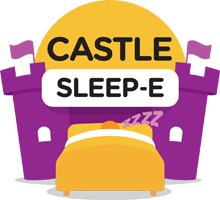The Core Health Outcomes In Childhood Epilepsy (CHOICE) study developed the first ever core outcome set for childhood epilepsy research. We reached consensus between young people, parents and professionals on which aspects of health and quality of life are most important to measure for children with epilepsy. We used established, systematic and transparent methods advocated by the COMET Initiative. We identified 38 outcomes across 10 domains that contributed toward a core outcome set for use in epilepsy research
We examined which outcomes had been measured previously in research and health and quality of life from qualitative research and patient reported outcome measures. We categorised outcome domains and conducted two rounds of a Delphi survey with young people, parents and professionals. Participants rated which outcome domains they thought were critical to measure in research. Finally we convened a face‐to‐face meeting that included young people with epilepsy, parents, and a variety of professionals to discuss marginal outcomes and to ratify agreement.
There are four publications related to this programme of research which are all freely available open access:
- Core Health Outcomes in Childhood Epilepsy (CHOICE): protocol for the selection of a core outcome set
- Core Health Outcomes in Childhood Epilepsy (CHOICE): Development of a core outcome set using systematic review methods and a Delphi survey consensus
- Epilepsy-specific patient-reported outcome measures of children’s health-related quality of life: A systematic review of measurement properties
- Mapping epilepsy-specific patient-reported outcome measures to a core outcome set for childhood epilepsy
To read Plain English summaries of the work please use the links below:
- Plain English research summary of the Core Outcome Set work
- Plain English research summary of the PROM review work
- Click here to view an illustration of CHOICE
The CHOICE work has been presented at the below international conferences:
- The British Paediatric Neurology Association (BPNA) annual conference, 2018
- The 13th European Congress on Epileptology (ECE) in Vienna, 2018
- The Core Outcome Measures in Effectiveness Trials (COMET) annual meeting in Amsterdam, 2019
- European Academy for Childhood Disability (EACD) conference in Paris 2019
- American Epilepsy Society (AES) November 2020 Virtual Conference
To view the latest poster click here
We included families of children with rolandic epilepsy, clinicians and other people working with children with rolandic epilepsy (sometime called benign epilepsy with centro-temporal spikes or BECTS) in an online survey to select which aspects of health and quality of life should be measured in future childhood epilepsy research. We have established a core outcome set of 38 outcomes across the following 10 domains: Seizures, Sleep, Social functioning, Mental health, Cognition, Physical functioning, Behaviour, Adverse events, Family life, Global Quality of life.
Who are we & what did we do?
The CHOICE study was coordinated by researchers mainly based at King’s College London and The University of Exeter Medical School. The team involved clinicians, researchers and parents of children with epilepsy from England and Wales. An ‘outcome’ is some aspect of a person’s health that is measured to compare treatments for specific health conditions. Most research in epilepsy focuses on measuring the effect of anti-epileptic medication on seizures as an outcome. However, we think it’s also important to include other outcomes too that might be affected by seizures or anti-epileptic medication such as a child’s learning, sleep, mental health, school and social life. We asked which outcomes parents, young people and professionals thought were more important to measure for children with rolandic epilepsy (also known as benign childhood epilepsy with centrotemporal spikes). To do this we conducted an online Delphi Survey.
Further information
How will we measure the outcomes?
We have recently published a systematic review of all the existing questionnaires, also known as Patient-Reported Outcome Measures (PROMs), that measure health-related quality of life (HRQoL) in childhood epilepsy. We recommend two leading candidate PROMs for
use in childhood epilepsy research. We have also mapped the items from those questionnaires to our core outcome set for childhood epilepsy research. We also consulted with parents and children on the acceptability of some of the questionnaires. This work will help to inform future researchers about which questionnaire to pick for a specific purpose.
Publications:
- Epilepsy-specific patient-reported outcome measures of children’s health-related quality of life: A systematic review of measurement properties
- Mapping epilepsy-specific patient-reported outcome measures to a core outcome set for childhood epilepsy research
Plain English Summaries:
Take part in the this study
This study is currently closed to recruitment and has been published. Please look at our other projects if you are interested in taking part in CASTLE.

